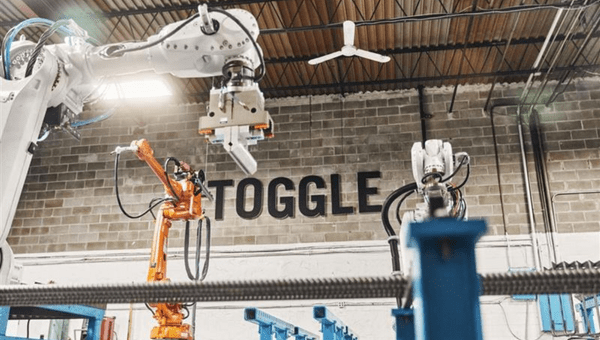Sonja Wollkopf Walt, CEO at Greater Zurich Area Ltd (GZA), talked to Switzerland's largest newspaper 20 Minuten about the impact of increasing AI and automation on the Swiss job market. This is the extended version of the interview, on which the published version from 5th May 2023 is based.
Which companies in Switzerland are already using artificial intelligence (AI)?
Sonja Wollkopf Walt: There are many companies in Switzerland that use AI. At GZA, we are in daily contact with companies that work with AI and whose business models are based on it. Mentioned in the current annual report, we have many biotech companies (Mirati, Peptone, Novavax) working on vaccines and cancer drugs with AI and high-performance software. As an example, GZA accompanied a settlement with SambaNova from Palo Alto, a fast-growing computing unicorn founded in 2017. It builds advanced machine learning and Big Data analytics platforms and hardware to optimize the performance of complex data processing.
The fact that many companies are working with AI is also shown by the expansion of their IT infrastructure. Amazon Web Services, a subsidiary of US giant Amazon, is expanding at its Swiss location. There are now 86 data centers in Switzerland, up from 70 five years ago. No country in Europe other than the Netherlands has as many data centers per capita. Crypto, cloud gaming and AI applications will require much more computing power in the future.
Are companies holding back on setting up operations in Switzerland because they use AI, or because automation and robotics make it unnecessary to expand?
The opposite is the case. Switzerland has a very attractive ecosystem for companies active in the field of AI and robotics. What is interesting is that we are finding it increasingly difficult to allocate the settlements in the typical tech clusters. We observe that new technologies, especially AI and blockchain applications, are increasingly being used in previously traditional industries such as food, life science, but also in the construction industry. The industries are becoming more intertwined and are benefiting from each other. This development is positive: it leads to renewal and diversification within economic areas and thus increases the resilience of the location.
Are companies saving as many costs with AI and automation that they no longer need to invest in Switzerland at all, and are they distributing fewer orders as a result?
As already said, Zurich as a business location is very attractive for companies in this field. What we are observing, however, is the fact that fewer and fewer jobs are being created. The companies located here have created 19 percent fewer new jobs than in the previous year: in 2021, there were 639 jobs. The number of new jobs created has been trending downward over the last three years. The use of new technologies and consistent automation of production processes are having an impact. In addition, international companies are pushing the cross-border division of labor. This means, for example, that research and development is carried out in Switzerland, while other functions such as HR or marketing are sometimes performed abroad.

The GZA Annual Report 2022 talks about a "major change in the employment structure" due to AI and automation - what is meant by this?
The Greater Zurich Area is a dynamic economic region that is constantly evolving over time. Over the past 25 years, traditional sectors such as industry, construction, and trade have lost weight. In contrast, innovative sectors such as specialized services, ICT and medtech have gained strongly in importance. Knowledge intensity and technology levels have increased significantly. The share of employment in skill-intensive sectors has risen sharply. Both the level of education and the qualification level of the workforce have increased significantly over this period. This trend will increase again in the coming years. A recent World Economic Forum report confirms this in a study. Employers expect a structural labor market turnover of 23 percent of jobs in the next 5 years. Machines will take over a significant share of jobs by 2027. However, the impact of most technologies on jobs is also expected to be net positive over the next 5 years.
Are there large automation and AI projects in Switzerland that are leading to companies needing fewer staff?
Our regular surveys show that many companies are increasingly automating. This is a positive development, as the working population is shrinking across Europe in the next few years. 100,000 people retire in Switzerland every year, and the trend is rising sharply. One indicator of how many net workers Switzerland loses each year as a result is the difference between 65-year-olds (who retire) and 20-year-olds (who enter the workforce). The tipping point was reached in 2019; since then, more people in Switzerland have retired than young people have joined the workforce. In the future, we simply won't have enough people to fill all the jobs. So when jobs become obsolete and automated in one place through AI, new, better job opportunities open up for workers elsewhere. Many people still spend too much time on simple tasks that could have been automated long ago. This is unproductive and prevents progress.
Are AI and automation destroying jobs in Switzerland?
For a long time, people in the low-wage sector were afraid that machines would take their jobs. A look at a recent study shows that in Switzerland, the demand for skilled workers in the catering industry, craftsmen, and production specialists is high. In our view, the fear is unfounded. On the contrary, bestselling author and Stepstone CEO Sebastian Dettmers recently wondered, "Would it be bad if AI made jobs obsolete? I think it could fundamentally improve everyday work." If, for example, lawyers could hand off the time-consuming task of checking legal texts? Or doctors would no longer have to waste long hours typing up medical reports? Instead, they could concentrate on more important things: direct patient contact, well-founded diagnoses, and research? More automation is a huge opportunity. As a location marketer, we are committed to ensuring that the ecosystem in Switzerland remains attractive and innovative. We are committed to the future viability of the location.
Are AI and automation thus preserving our prosperity and the alternative (no growth) would be worse?
The world of work will become more automated and, with AI and robotics, experience a strong change in job images and employment structure. Demographic change will reduce pressure on jobs or lead to structured labor shortages. The currently prevailing discussion about inequality will therefore become more entrenched at the expense of the discussion about job security. Unemployment for economic reasons will be replaced by unemployment for "skills gap" reasons or inequality issues. Demographic change in particular is also highly relevant for Switzerland. A WEF study concludes that 44% of the workforce will need reskilling in the next 5 years. As a location marketer, we want to influence this change insofar as we work to ensure that the location remains attractive for companies and their investments. Together with other institutions and players, we want to drive the Greater Zurich Area forward. Our focus is on attracting innovation and value creation.
Who is most affected by automation?
Everyone is affected. In Switzerland, we have to make sure that we invest in appropriate training and keep the ecosystem attractive. Empirical studies have shown that technology companies and research-intensive firms primarily choose locations that are characterized by high human capital on the labor market, existing agglomerations of similar companies, and a research-intensive network. Automation and AI represent a great opportunity for Greater Zurich as a location.
Greater Zurich: A hub for artificial intelligence
Greater Zurich: A hub for artificial intelligence
Switzerland and the Greater Zurich Area have occupied top positions in renowned worldwide rankings on innovative strength and talent availability. Greater Zurich’s various research institutes, such as ETH Zurich and its AI Center as well as the Swiss AI Lab IDSIA, continue to rank as some of the leading technical institutes in the world and attract the best talents and companies including Google, IBM, Microsoft, Facebook, Oracle and many others.
More News
Meet with an expansion expert
Our services are free of charge and include:
- Introduction to key contacts in industry, academia, and government
- Advice on regulatory framework, taxes, labor, market, and setting up a company
- Custom-made fact-finding visits, including office and co-working space
